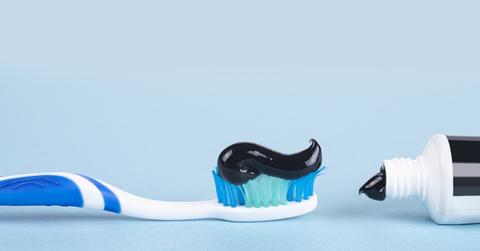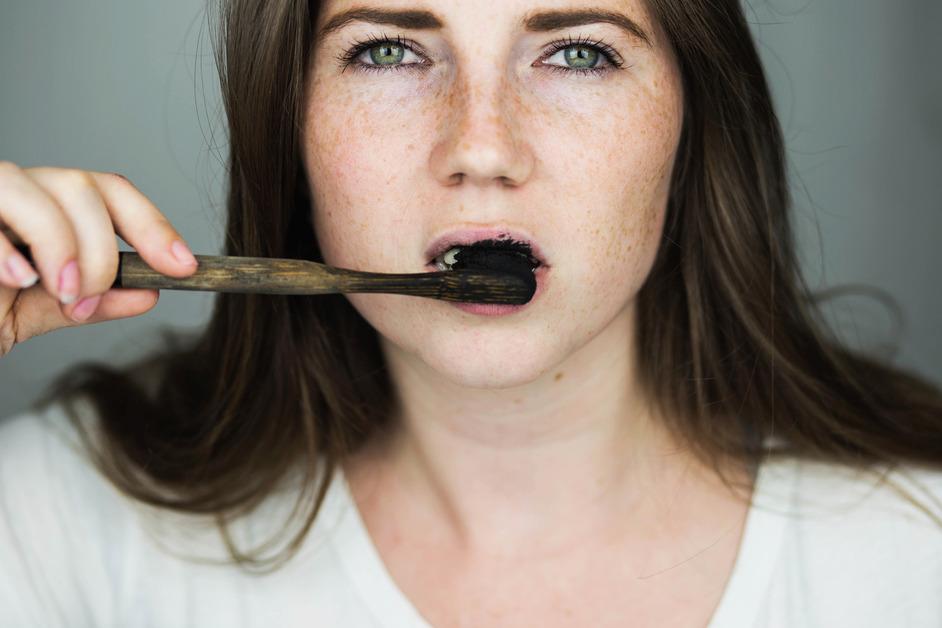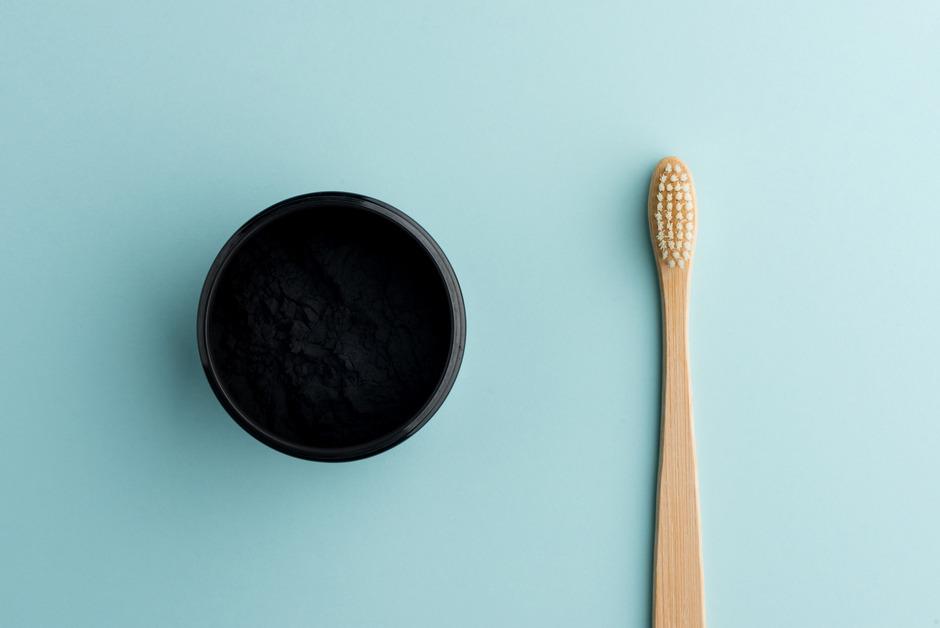A Dentist’s Take on Charcoal Toothpaste: Does It Whiten or Wear Down Your Teeth? (Exclusive)
Published Nov. 20 2023, 10:50 a.m. ET

The Gist:
Toothpaste made with activated charcoal is popular among those looking to whiten their teeth.
Charcoal is abrasive, and can cause damage to the tooth enamel.
Because of the risks associated with oral charcoal products, it may not be safe and effective for teeth-whitening.
It may seem strange, but charcoal has become a popular toothpaste ingredient for those looking to whiten their teeth. It’s black toothpaste made using activated charcoal, which is not the same as charcoal plucked straight from a fire, but a more porous and absorbent variety of charcoal.
Although many claim charcoal whitens and removes surface stains, could brushing with charcoal be bad for your teeth? In November 2023, Green Matters spoke exclusively to Dr. Rhonda Kalasho, dentist and CEO of TruGLO Modern Dental, via email, about the efficacy of charcoal tooth products, and if they are something you should avoid.

Is charcoal good or bad for your teeth?
The general consensus is that charcoal is more bad than good for your teeth. According to Healthline, charcoal is abrasive, and is only effective in removing some surface stains on your teeth, which are stains above the tooth’s enamel.
Dr. Kalasho tells Green Matters that a 2022 study published in NCBI "suggests that these toothpastes have a lower whitening effect compared to other alternatives and can be considered less safe due to their high abrasive potential. Additionally, the 2015 research from the American Academy of General Dentistry noted that activated charcoal toothpaste was more abrasive than a whitening toothpaste on acrylic resins, which are what your fillings are made up of."
Dr. Kalasho always makes sure to tell her patients with veneers, bonding, and fillings to avoid charcoal toothpastes, since the charcoal can "deposit within the resin and discolor teeth further."
Charcoal can be very harsh on the mouth. According to Byte, after brushing with charcoal, fine grains can leach into fillings or cracks of teeth and increase tooth decay. If the charcoal grains sit in the gums or small cuts in the mouth, this can lead to irritation. For those with weak tooth enamel, the abrasiveness of charcoal can be especially bad for oral health.
Are charcoal toothbrushes good for your teeth?
Besides charcoal toothpaste, some toothbrushes have black charcoal-infused bristles, which are also advertised to whiten teeth. According to Healthline, charcoal toothbrushes can cause tooth damage and enamel erosion also because of their abrasiveness.
“Charcoal-bristled toothbrushes may have some of the same abrasive potential concerns as charcoal-based toothpaste, as they could potentially contribute to tooth enamel and dental material wear. However, it's important to note that the use of a toothbrush is typically less abrasive than toothpaste, as the bristles are softer and the brushing action is gentler,” Dr. Kalasho explains to Green Matters.
Instead of charcoal-bristled toothbrushes, Dr. Kalasho recommends electric toothbrushes.
Does charcoal whiten teeth (and is it safe for your teeth?)
There is not enough evidence to show that charcoal toothpaste, charcoal toothbrushes, and other charcoal whitening products are effective in teeth whitening. Charcoal can remove surface tooth stains through absorption, such as coffee, but cannot reach stains under the enamel. This means it may not be more effective than regular toothpaste, per Healthline.
Dr. Kalasho believes that charcoal-based tooth whitening products "should be approached with caution," especially if the products contain fine black charcoal powder, because that poses "a risk of the charcoal becoming embedded in dental defects." They can also be highly abrasive and pose risks to tooth enamel.

“The research and studies cited throughout the years raise concerns about the effectiveness and safety of charcoal-based oral care products, including toothpaste and tooth whitening products,” Dr. Kalasho says. “Because of the lack of evidence in the safety and efficacy of charcoal-based powders, it is advised to exercise use with caution.”
The risks associated with using charcoal products, such as tooth damage and weakened enamel, suggest that another approach to teeth whitening may be better for your oral health. Overall, Dr. Kalasho generally advises her patients to stay away charcoal-based oral care products.